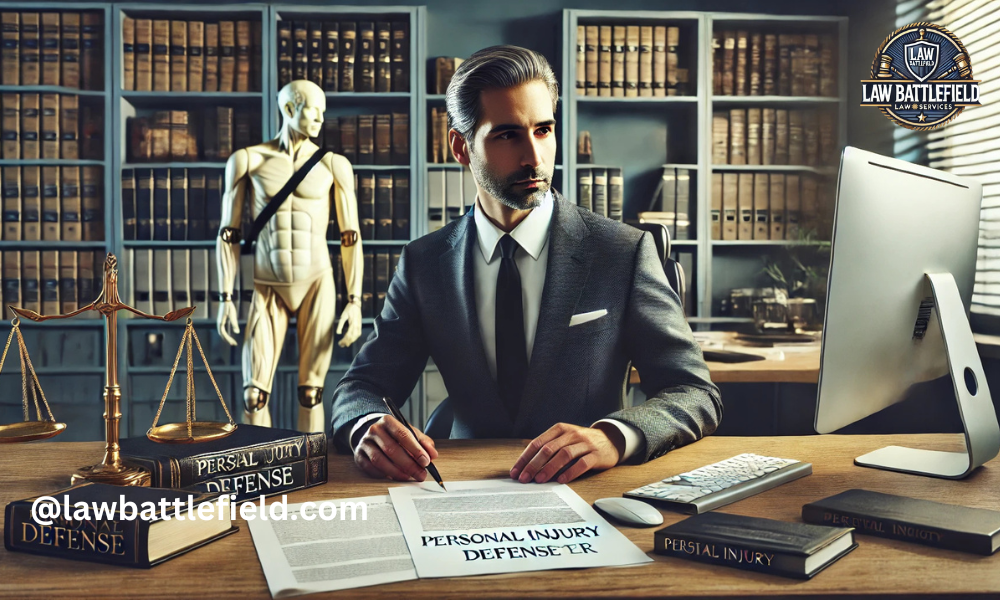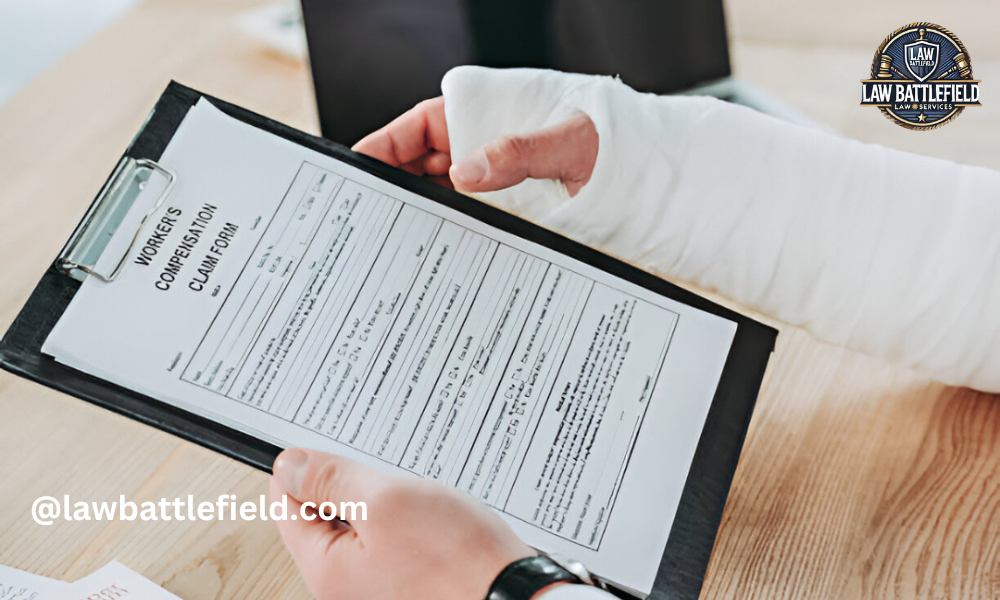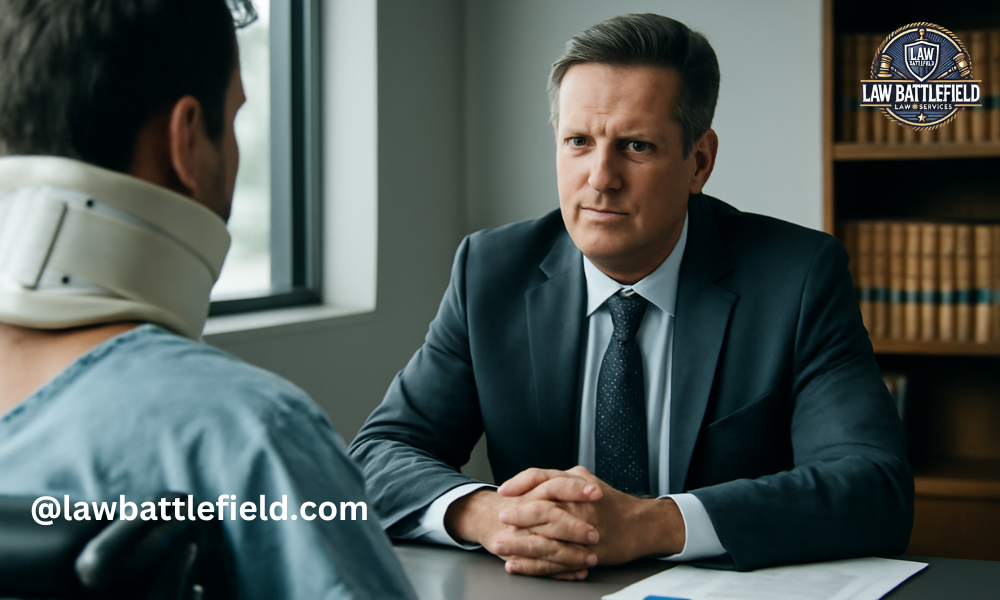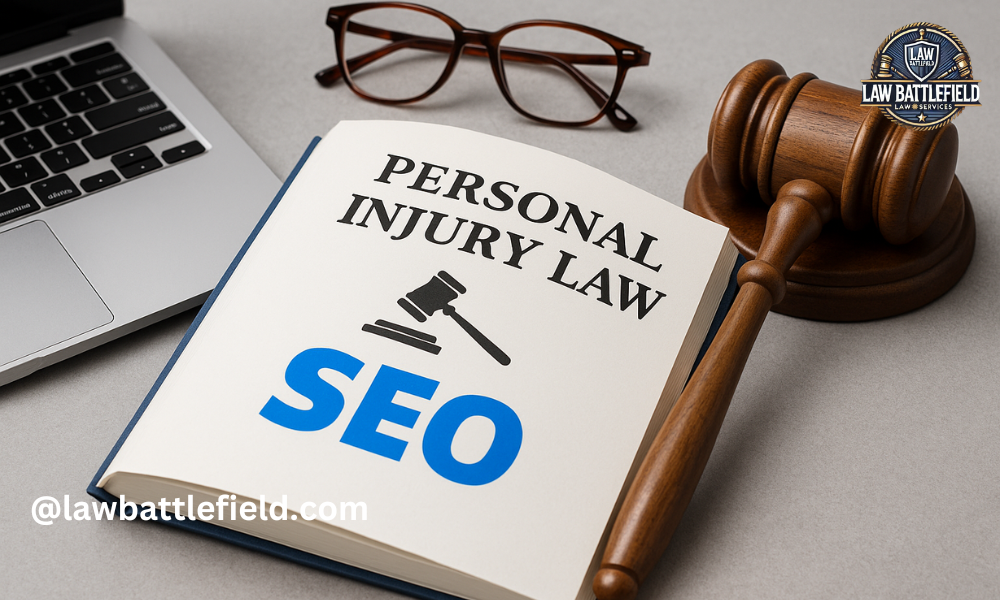Introduction To Personal Injury Defence Lawyer
Definition Of Personal Injury Defense Lawyer
Personal injury defence lawyer refers to the legal practice that defends individuals or businesses accused of causing harm to others through accidents or negligence. This area of law protects defendants from claims made by plaintiffs who are seeking compensation for injuries. The goal of personal injury defense is to either avoid any liability or reduce the amount of compensation a defendant has to pay.
The Role Of A Personal Injury Defense Lawyer
A personal injury defense lawyer works on behalf of a defendant in personal injury cases. Their main job is to challenge the plaintiff’s claims and build a strong defense to protect their client. They work closely with insurance companies, gather evidence, and use legal tactics to prove that the defendant is not at fault or should be held responsible for less damage. Personal injury defense lawyers also negotiate settlements, ensuring that their clients face the least financial burden possible.
Why These Lawyers Are Essential In Personal Injury Litigation
Personal injury defense lawyers are crucial in personal injury lawsuits because they help protect the interests of those who are accused of causing harm. Whether it’s an individual or a business, these lawyers ensure that their clients are not unfairly burdened by high claims.
They can prevent or reduce financial consequences by questioning the evidence and presenting counterarguments. Without a skilled personal injury defense lawyer, defendants would be at a disadvantage in the courtroom, where plaintiffs are often represented by experienced lawyers focused on securing maximum compensation.
What Does A Personal Injury Defense Lawyer Do?
Representation Of Individuals Or Entities Facing Personal Injury Lawsuits
Personal injury defense lawyers represent defendants in lawsuits where individuals or businesses are accused of causing harm to others. These defendants might include drivers involved in car accidents, doctors accused of malpractice, or property owners facing premises liability claims.
The defense lawyer works on behalf of the defendant to protect their rights, assess the situation, and build a defense that challenges the plaintiff’s case.
How They Defend Against Claims Of Negligence, Liability, And Damages
When defending against a personal injury lawsuit, a defense lawyer focuses on disproving claims of negligence and liability. They analyze the plaintiff’s evidence and gather facts that contradict the allegations.
For example, if a defendant is accused of causing a car accident, the defense lawyer may present evidence showing the defendant was not at fault or that the accident was due to the plaintiff’s own actions. They might also argue that the defendant’s actions did not directly cause the plaintiff’s injuries or that the plaintiff’s damages were not as severe as claimed.
Their Main Goal: Minimizing Liability And Financial Damage
The primary objective of a personal injury defense lawyer is to minimize their client’s financial responsibility. They do this by either seeking a dismissal of the case or reducing the amount of compensation the defendant has to pay.
This could involve negotiating settlements that are lower than the plaintiff’s demands or pushing for a trial verdict in the defendant’s favor. In cases where liability is clear, the lawyer may try to reduce the extent of the damages, often by showing that the injuries were less severe or that other factors contributed to the plaintiff’s situation.
Types Of Cases Handled By Personal Injury Defense Lawyers
Car Accidents And Premises Liability
Personal injury defense lawyers often handle cases involving car accidents, where the defendant is accused of causing an accident through negligence or reckless driving. They gather evidence, such as accident reports, witness testimonies, and traffic camera footage, to defend their client.
They may argue that the defendant was not at fault or that the plaintiff contributed to the accident. Premises liability cases are another common type of case for defense lawyers. These involve accidents that occur on someone’s property, like slips and falls. The defense lawyer works to show that the property owner was not negligent in maintaining safe conditions.
Medical Malpractice And Worker’s Compensation Cases
Another area personal injury defense lawyers focus on is medical malpractice, where healthcare professionals are accused of providing inadequate or negligent care. Defense lawyers in these cases scrutinize the medical records, expert testimonies, and the standard of care to challenge claims made by the plaintiff.
Worker’s compensation cases are also common, where employees claim that they were injured at work. The defense lawyer examines the details of the incident to see if the injury was caused by the employer’s negligence or if the injury was pre-existing.
Dog Bites, Product Liability, And Wrongful Death Cases
Defense lawyers also represent clients in cases involving dog bites, product liability, and wrongful death. In dog bite cases, the defense lawyer will examine whether the owner was aware of the dog’s tendencies or if the plaintiff provoked the dog. Product liability cases involve claims that a defective product caused harm to the plaintiff.
The defense lawyer will seek to prove that the product was not defective or that the plaintiff misused it. In wrongful death cases, defense attorneys focus on disproving the connection between the defendant’s actions and the plaintiff’s death, often arguing that the death was due to unrelated factors.
How Personal Injury Defense Lawyers Are Hired
Insurance Companies’ Role In Choosing Defense Lawyers
Insurance companies often play a significant role in hiring personal injury defense lawyers. When the defendant has insurance, the insurer typically takes responsibility for managing the defense. The insurance company works with law firms that specialize in defending personal injury claims.
These lawyers are chosen based on their experience, expertise, and track record in handling similar cases. Insurance companies aim to minimize their financial exposure by selecting defense lawyers who can effectively reduce or eliminate the defendant’s liability.
Differences Between Insured And Uninsured Defendants
The hiring process can differ depending on whether the defendant is insured or uninsured. For insured defendants, the insurance company usually selects the defense lawyer and covers the legal fees. Insured defendants may have less input in choosing their lawyer, as the insurer prioritizes lawyers who align with their defense strategies.
On the other hand, uninsured defendants must hire and pay for their own defense lawyer. In this case, they often rely on personal recommendations, consultations, and affordability when choosing legal representation.
The Process Of Selecting A Defense Lawyer And The Role Of Insurance Companies
The process of selecting a personal injury defense lawyer begins when the defendant is notified of the lawsuit. If the defendant is insured, the insurance company typically reaches out to a law firm with experience in personal injury defense. The insurer may offer a list of recommended lawyers to the defendant or may directly assign an attorney to handle the case. In some instances, the defendant may request a specific lawyer or law firm, but the insurance company typically has the final say.
For uninsured defendants, the process is more straightforward. They usually search for a lawyer specializing in personal injury defense through online directories, legal referrals, or word-of-mouth recommendations. Once they have found potential lawyers, they schedule consultations to discuss their case, review fees, and determine if the lawyer is a good fit. Regardless of whether the defendant is insured or uninsured, the lawyer’s experience in personal injury defense is crucial to ensuring the best possible outcome.
The Role Of Insurance Companies In Personal Injury Defense
How Insurance Companies Fund The Defense
In personal injury defense cases, insurance companies often bear the financial responsibility for defending the insured party. When the defendant has insurance coverage, the insurer typically pays for the legal fees associated with defending the claim. This includes hiring a personal injury defense lawyer, covering court costs, and paying for any necessary expert witnesses. The insurance company chooses the lawyer, as they want to ensure the defense aligns with their interests and goals, such as minimizing costs and reducing the potential payout for damages.
Insurance companies will fund the defense even if the case seems likely to result in a payout, as long as it falls within the coverage terms of the policy. In cases where the potential damages exceed the insurance coverage, the defendant may be personally responsible for any remaining costs. This is why insurers carefully assess the case and often strive to settle out of court to minimize expenses.
Insurance Defense Attorneys: Special Training And Resources
Insurance defense attorneys are specifically trained to handle cases where an insurance company is involved in defending the insured. These lawyers have experience in working within the framework of insurance law and are skilled in managing claims that are often complex and involve multiple parties. They have access to resources that are typically not available to individuals without insurance, including legal research databases, expert witnesses, and investigators.
The primary advantage of using an insurance defense attorney is their ability to understand the intricacies of both insurance policies and personal injury law. They know how to navigate the process of defending a claim in a way that minimizes the insurer’s financial risk and protects the insured’s interests. They are also adept at negotiating settlements and seeking the most cost-effective resolutions for the insurer.
Aligning The Interests Of The Insurer And The Insured
A personal injury defense lawyer’s role is to align the interests of both the insurer and the insured. While the insurance company is focused on limiting the payout to the plaintiff, the insured’s priority is to protect their financial stability and reputation. A skilled defense lawyer works to balance these interests by defending the case vigorously, seeking to either dismiss the claims or reduce the damages, while also considering the insurer’s cost-saving goals.
In practice, the defense attorney communicates with both parties to ensure that the strategy they pursue is acceptable to both the insurer and the defendant. For instance, the defense lawyer might negotiate a settlement that is favorable for both the defendant and the insurer by lowering the total payout while still ensuring that the defendant is not financially overwhelmed. By doing so, they help avoid lengthy litigation, which could result in higher legal costs for the insurer.
The Litigation Process And Tactics Used By Defense Lawyers
Discovery Phase: Gathering Evidence To Challenge The Plaintiff’s Case
The discovery phase is a critical step in personal injury defense litigation. During this phase, both parties exchange relevant information and evidence to build their cases. For defense lawyers, this is the time to gather evidence that weakens the plaintiff’s case. Defense lawyers typically request documents, such as medical records, accident reports, and witness statements, that can help challenge the plaintiff’s claims of negligence or injury severity.
Additionally, defense attorneys may use depositions, where they question the plaintiff and key witnesses under oath to uncover inconsistencies or contradictions in their statements. The goal is to find holes in the plaintiff’s story or to show that the defendant is not liable for the injuries claimed. By thoroughly reviewing all the evidence, defense lawyers can strategically prepare for trial or negotiation.
Cross-examining Plaintiffs And Witnesses
Once the case reaches trial, cross-examination becomes a vital tactic for defense lawyers. Cross-examining the plaintiff and other witnesses is one of the most powerful ways to discredit the other side’s case. Defense lawyers carefully prepare questions that highlight contradictions, exaggerations, or lack of credibility in the plaintiff’s testimony. They aim to create doubt in the minds of the judge or jury regarding the plaintiff’s claims.
In many personal injury cases, the defense lawyer will also cross-examine expert witnesses brought in by the plaintiff to question their qualifications or the validity of their opinions. The goal is to reduce the weight of the plaintiff’s evidence and weaken their case before the jury or judge.
Legal Motions And Strategies To Dismiss Or Reduce Claims
Throughout the litigation process, defense lawyers often file legal motions to challenge the plaintiff’s case. A common motion is a motion to dismiss, which argues that the plaintiff has failed to present sufficient evidence to support their claims, or that there are legal reasons why the case should not proceed. For example, the defense might argue that the statute of limitations has expired or that there is insufficient evidence to prove negligence.
Additionally, defense lawyers can file motions for summary judgment, asking the court to rule in favor of the defendant without going to trial. These motions are often based on the idea that, even if the plaintiff’s claims are true, there is no legal basis for holding the defendant liable. If successful, these motions can end the case early, saving time and legal expenses.
Trial Preparation And Handling Expert Witnesses
As the case moves towards trial, the defense lawyer focuses on trial preparation. This includes creating a clear strategy for presenting the case, preparing opening and closing statements, and organizing evidence in a way that tells a compelling story. One of the most important aspects of trial preparation is handling expert witnesses. In personal injury cases, expert witnesses often play a key role in explaining technical aspects of the case, such as medical conditions, accident reconstruction, or long-term damage assessments.
Defense lawyers work closely with their own expert witnesses to ensure that their testimony supports the defense’s argument. They may hire medical experts to challenge the severity of the plaintiff’s injuries or accident reconstruction experts to show that the plaintiff’s version of events is inaccurate. Effective use of expert witnesses can help cast doubt on the plaintiff’s case and sway the jury’s opinion in favor of the defendant.
Strategies Employed By Personal Injury Defense Lawyers
Disputing Causation Of Injuries Or Damages
One of the most common strategies employed by personal injury defense lawyers is disputing the causation of the plaintiff’s injuries. In many cases, the defense will argue that the defendant’s actions were not the direct cause of the plaintiff’s damages.
For example, in a car accident case, the defense may argue that the injuries sustained by the plaintiff were not caused by the accident, but by a pre-existing medical condition or another unrelated event. Defense attorneys will gather medical records, expert opinions, and other evidence to support this claim and demonstrate that there is no clear link between the defendant’s actions and the plaintiff’s injuries.
Argue Comparative Fault Or Contributory Negligence
Another key strategy is to argue that the plaintiff was partially or fully at fault for their own injuries, using the legal principles of comparative fault or contributory negligence. Under comparative fault, the defendant argues that the plaintiff contributed to the accident or injury in some way, and as a result, any damages should be reduced based on the plaintiff’s own negligence.
In jurisdictions that follow contributory negligence, if the plaintiff is found to be even slightly at fault, they may be barred from recovering any damages. Personal injury defense lawyers use this strategy to minimize their client’s liability by shifting some or all of the blame to the plaintiff.
Mitigating The Severity Of Injuries And Damages
Defense lawyers also focus on mitigating the severity of the plaintiff’s injuries or damages. They may argue that the plaintiff exaggerated the extent of their injuries or that they did not follow proper medical treatment, leading to worse outcomes. For example, the defense might bring in medical experts to testify that the plaintiff’s injuries were minor and could have healed quickly with proper care.
By reducing the perceived severity of the injuries, defense lawyers aim to lower the amount of compensation the plaintiff may receive. This strategy helps to reduce the financial burden on the defendant and can lead to a more favorable settlement or verdict.
How Personal Injury Defense Lawyers Protect Clients’ Interests
Protecting Financial And Reputational Risks
Personal injury defense lawyers are essential in safeguarding their clients’ financial and reputational interests. A primary concern for defendants in these cases is the potential for large financial payouts or damage to their reputation. Defense lawyers work diligently to reduce or eliminate the financial impact of the case by disputing the plaintiff’s claims, challenging the evidence, and aiming for a dismissal or a reduced award.
In addition to financial protection, defense lawyers also manage reputational risks, especially for businesses or professionals. For instance, in a case involving a doctor accused of medical malpractice, the defense lawyer’s role includes protecting the doctor’s professional standing. This could involve questioning the qualifications or reliability of the plaintiff’s expert witnesses or showing that the doctor’s actions were consistent with industry standards. By minimizing the public impact of the case, defense lawyers protect both the personal and business reputations of their clients.
Negotiation And Settlement Strategies
Negotiation is a crucial aspect of personal injury defense. Often, the best way to protect a client’s interests is by reaching a fair settlement before the case goes to trial. Personal injury defense lawyers use various strategies to negotiate settlements that minimize costs and prevent lengthy litigation. They may present the strengths of their case to the plaintiff’s lawyer to persuade them to accept a lower settlement offer.
In some instances, defense lawyers may offer settlements that reduce the overall payout or provide compensation without admitting fault. These strategies help avoid the uncertainty of a trial and allow the defendant to settle for a more manageable amount. Skilled negotiators aim to achieve the best possible outcome for their clients by weighing the costs of further litigation against the benefits of settlement.
Keeping The Defendant’s Interests Aligned With The Insurer
Personal injury defense lawyers must also ensure that the defendant’s interests are in line with those of the insurance company. This is crucial in cases where the defendant is insured, as the insurance company typically controls much of the legal strategy and financial decisions. Defense lawyers work to maintain clear communication between the insurer and the insured, ensuring that both parties are on the same page regarding settlement offers, legal tactics, and trial strategies.
By aligning the interests of the defendant and the insurance company, defense lawyers can create a unified defense strategy that protects the financial interests of both. They manage expectations, coordinate decisions on settlement or trial, and aim to achieve the best result for the client without unnecessary delays or conflicts between the insurer and the defendant.
When To Hire A Personal Injury Defense Lawyer
Common Scenarios When Hiring A Defense Lawyer Is Necessary
There are several scenarios in which hiring a personal injury defense lawyer is crucial. If you are facing a lawsuit in which someone claims they were injured due to your actions or negligence, it is essential to have a defense lawyer to protect your interests. This is particularly important if the plaintiff is seeking a large amount of damages or if the case involves complex issues, such as medical malpractice, premises liability, or product defects.
Another scenario is when the stakes are high, such as when the defendant faces potential damage to their reputation, loss of business, or long-term financial strain. Personal injury defense lawyers are also necessary when the evidence is in dispute or when the defendant has a strong case and wants to avoid settlement or trial altogether. In these situations, a skilled lawyer will help formulate an effective strategy to either dismiss the case or reduce the amount of damages sought.
How To Find The Right Lawyer For Your Case
Choosing the right personal injury defense lawyer requires careful consideration. Start by looking for lawyers with experience in defending cases similar to yours. For instance, if your case involves a car accident, search for a lawyer with a track record in vehicle accident defense. You can find such lawyers through online legal directories, bar association referrals, or recommendations from other professionals or business owners.
It’s also essential to consider the lawyer’s reputation, experience with insurance companies (if applicable), and approach to defending cases. Many defense lawyers offer free initial consultations, which allow you to discuss your case and gauge whether the lawyer is a good fit. Ensure the lawyer has a clear understanding of your concerns and is willing to work closely with you to develop a strong defense strategy.
Importance Of Having A Skilled Lawyer In Personal Injury Defense
Having a skilled personal injury defense lawyer is critical because of the complexities involved in defending these types of cases. An experienced lawyer can identify weaknesses in the plaintiff’s claims, gather evidence, and negotiate effectively with the other party or their insurer. Their expertise in trial preparation and strategic defense tactics can mean the difference between winning the case or facing significant financial liability. The right lawyer will also work to ensure that your reputation remains intact throughout the process, providing guidance and representation that aligns with your best interests.
Conclusion
Summarize The Importance Of Hiring A Qualified Personal Injury Defense Lawyer
In conclusion, hiring a qualified personal injury defense lawyer is crucial when you are facing a lawsuit. A skilled lawyer will help you navigate the complexities of the legal process, protect your financial interests, and minimize potential reputational damage. Whether you are dealing with an insurance claim, a lawsuit involving serious allegations, or a complex case requiring expert witness testimony, the right defense lawyer will ensure that you have the best possible chance of a favorable outcome.
Call To Action For Those Facing A Personal Injury Lawsuit
If you are facing a personal injury lawsuit, don’t wait to hire a defense lawyer. Contact an experienced attorney today to discuss your case and get the expert legal representation you need to protect your rights and minimize your risks.
FAQs
What Is The Role Of A Personal Injury Defense Lawyer?
A personal injury defense lawyer represents individuals or companies being sued for personal injury. Their role is to challenge the plaintiff’s claims, gather evidence, and protect their client’s financial and reputational interests. They aim to reduce or dismiss liability by disputing fault, causation, or the severity of the damages claimed.
When Should I Hire A Personal Injury Defense Lawyer?
You should hire a personal injury defense lawyer as soon as you are notified of a personal injury lawsuit. Early legal representation helps you understand your rights, explore options for dismissal or settlement, and prepare a solid defense to protect your interests, especially if the stakes are high or the case is complex.
How Do Defense Lawyers Challenge Personal Injury Claims?
Defense lawyers challenge personal injury claims by disputing causation (arguing that the defendant’s actions did not cause the injuries), presenting evidence of the plaintiff’s comparative fault (arguing that the plaintiff’s own negligence contributed), or challenging the severity of the damages. They may also use motions to dismiss or seek settlements that reduce financial exposure.
How Do Insurance Companies Work With Personal Injury Defense Lawyers?
Insurance companies typically hire personal injury defense lawyers when the defendant has insurance coverage. The insurer funds the defense, including legal fees, and chooses the lawyer. The defense lawyer then works to protect both the insured’s and the insurer’s interests by minimizing the payout or dismissing the claims.
What Should I Look For When Hiring A Personal Injury Defense Lawyer?
When hiring a personal injury defense lawyer, look for experience in handling cases similar to yours, a strong track record of defending similar claims, and a strategy that aligns with your needs. It’s also important that the lawyer has good communication skills, an understanding of insurance issues (if applicable), and the ability to negotiate favorable settlements.
Was this article helpful? Check out more on Lawbattlefield.com
Chesapeake Mesothelioma Lawyer Vimeo: Your Guide To Finding Legal Help And Compensation





